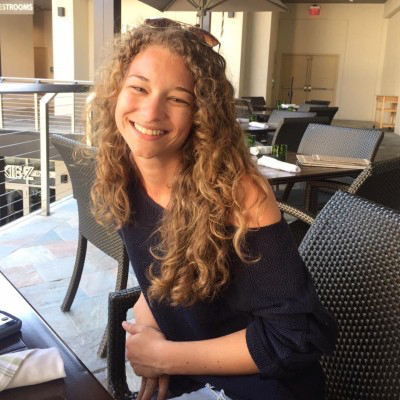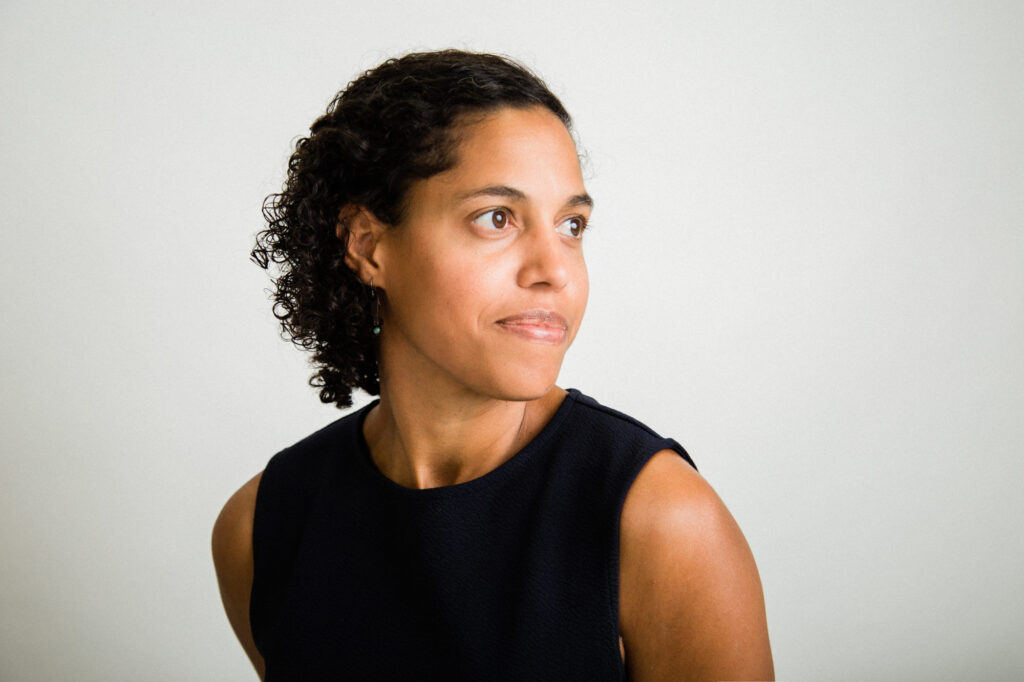Soon, Kimmy Paluch, co-founder and managing partner of Beta Boom, will board a plane from Utah, returning to Jamaica for one of her family’s rare reunions — a gathering that draws relatives from across the globe.
The youngest of five daughters, Kimmy was born and raised in Jamaica, surrounded by a sprawling extended family. Her grandmother was one of 11 siblings, meaning aunts, uncles, and cousins were always part of the fabric of her life, shaping her in countless ways.
Yet despite the strength of that foundation, most of her family no longer live in Jamaica — and for good reason. At the time, Jamaica was overrun by gangs and violence.
“Growing up, I knew I wanted to go to the States for school,” she says. “I always knew that if I wanted to get to the upper echelon and do all the things I wanted to do, I would have a better chance if I left Jamaica than if I stayed.”
Growing Up in Kingston
Kimmy was a rambunctious tomboy, spending her days running around barefoot or watching sports with her dad. She was also a self-proclaimed goody-two-shoes and nerd, obsessed with math, especially statistics.
“Our family really prioritized learning and education above everything else,” she says. “I think that’s a typical immigrant story.”
With such a packed household, keeping the peace wasn’t always easy. Even as a child, Kimmy naturally stepped into the role of mediator — the glue holding her family together. A born joker, she’d defuse tension with humor, laughing through the chaos.
“I was definitely a clown growing up,” she recalls. No matter how heated the fights at home became, her family was more than just her world — they were her refuge.
Outside, violence bled into the streets, and even playdates ran on a strict timetable, dictated by danger. Inside those walls, though, they had each other. This resulted in a very sheltered upbringing.
“My mom was quite overprotective of all of us,” Kimmy says. “But that sheltered life did leave me longing to experience other things and want to do things.”
Fight to Flight
Since childhood, Kimmy knew danger was everywhere.
“We were always aware of the need to be conscious of your surroundings,” she says. “I can’t remember a time not thinking that there are bad people in the world and bad things can happen.”
Kimmy’s parents, especially her father, were intent on getting their girls to a place with more opportunities. But the catapult for her journey would be a terrifying one.
The breaking point arrived when drug lords turned a Kingston neighborhood into a war zone. Gunfire erupted, escalating so wildly that the military was called in — only to be outgunned and overrun by the cartel. The streets weren’t just lawless; they were lost.
Days later, her father found himself at a bar beside a local official. As they talked about Jamaica’s spiraling violence, her dad pressed the question: “What happens when even the army can’t stop it?” The politician had no answer.
Kimmy remembers the fire in her father’s eyes when he walked through the door that night – questioning his family’s future.
“My mom shared this, but my dad was definitely more articulate about, you know, where is this country going and are we doing a disservice to our kids by making them stay here?,” she recounts.
Adding to the fire, her eldest sister at the time was applying to the University of the West Indies but was rejected despite her qualifications.
“We kept hearing stories of people that basically bought their way in,” Kimmy explains. “I think it was a level of frustration and time to move forward.”
This proved to her father that upward momentum in Jamaica was unattainable for those without resources. He then learned about a family friend who sent their three boys to the U.S. for boarding school. He suddenly had a new avenue to explore.
Kimmy and her sister applied to various boarding schools before both were accepted to a school in Windsor, Connecticut, leaving for the U.S. her junior year of high school. By junior year, Kimmy was crossing the ocean toward an unfamiliar world.
For the first time, her future wouldn’t be measured in escape routes, but opportunities.
New Horizons
By graduation, Kimmy had set her sights on computer science, applying to over 30 universities, eventually being accepted into Dartmouth College.
After years of work, Kimmy was finally free to explore a new life away from violence and onlookers.
The first week she arrived at Dartmouth, Kimmy declared her major and planned out the next four years of her life, making sure to find time to join the varsity crew rowing team, play clarinet, and even planned a three-month trip to Spain her sophomore year.
But by junior year, Kimmy adjusted her goals after she learned how creative her parents had to get to keep their five girls in school while paying bills.
“I felt this big indebtedness to my parents,” she admits. “I wanted to lessen the burden on them in some way.”
Kimmy juggled dishwashing shifts at a Jewish center with all-night study sessions, determined to keep her grades up. When her friends noticed her exhaustion, they urged her to apply for a library job—a move that would unknowingly change her life.
Her first day began with a group meeting, which is where she met her future co-founder and husband, Sergio. Their first conversation sparked a playful debate—“Whose country makes stronger liquor?”—with him defending Polish vodka and her swearing by Jamaican rum.
Kimmy insisted their relationship stay platonic, but as they spent more time together, sharing lunch on the green outside their school every day, things changed. “And we kind of went from there.”
Finding Her Footing
But after graduation, reality hit. Unemployed and uncertain, Kimmy faced a crossroads. Everyone insisted that tech dreams required a Bay Area address—so she and Sergio, now engaged, packed their lives into an apartment on the West Coast, ready to write their next chapter.
Kimmy says the job market was “fucking brutal, nobody would hire me.”
Convinced there was something wrong with her qualifications, she decided to consult for an independent law office and began taking classes at UC Berkeley.
Eventually, she landed her “first real job” managing engineering teams, something she ironically had no experience in.
Kimmy was hired at a pivotal moment in user experience design — right as Apple had elevated it from a niche discipline to the defining element of brand differentiation. Intrigued by her work, Sergio left his job at Google to work alongside Kimmy.
After about a year in the trenches, they realized they could do this better. Their vision was to design software powered by data, not just intuition. This was the spark that became the launching point of Boom Factor, which defined the next 12 years of their lives.
But Kimmy never stopped asking: how can we make a bigger impact in the world?
Breaking into VC
As time passed, the allure of moving to the investor side of the table grew stronger. But the more time she spent with startups, the more disillusioned she became.
“I felt like all the things I was working on were just following the trends of the day,” she explains. “Whatever [and whoever] VCs thought should get funding, which tended to be like a certain profile”
That was when she started researching the funding side of startups. If she wanted to drive real change, she needed to be on the other side of the table. So she dove headfirst into the world of venture capital—despite having no finance background.
So Kimmy joined a part-time fellowship working directly with their investment team. The experience was eye-opening, not just about deals and valuations, but about the industry’s deep-seated biases.
One experience that has always stuck. She accompanied her male boss to a two-day toy convention. There were very few women at the event, and the room tended to be divided by sex.
“It was a funny dynamic,” she recalls. “But at the end of the night, it was less funny.”
As the event wound down, a strange man came up to her, handed her his empty glass, and thanked her for arranging the conference.
“His immediate impression of me being in that room was that I must have just been an admin or staff at the event,” she fumes. “That really hit me hard.”
While her experiences leave their own scars, she can’t help but become even more upset when she thinks about how common this behavior is.
“I’ve heard way too many stories from people, like founders, talking about the shit they’ve had to put up with,” Kimmy divulges. “The blatant sexual harassment and underestimation and being put down because you don’t fit some paradigm that you think you need to fit.”
But the most insidious part for her is how easily she—and so many others— internalize those comments and behaviors. Years spent twisting herself into knots wondering, ‘what’s wrong with me?’
“It’s all infuriating,” she concludes.
Breaking the System
But the startup world is a hostile and unforgiving one. Survival isn’t about talent or vision alone; it’s about clawing your way forward as the ground crumbles beneath you.
“Don’t say why me, say what are you going to do about it?” she advises. “Just being gritty is not enough, you’ve got to know how to play the game and work the networks.”
It is also worth remembering what coming from hardship means.
“Even if we don’t recognize it, we’ve had harder journeys than most people, and that is a power,” she emphasizes. “That is a competitive advantage and we’ve got to use it.”
“It takes a special kind of person, but it also takes a special type of commitment,” she asserts, maintaining an attitude of, ‘I will break down walls to make this happen’ will keep you afloat.
Her final truth cuts deepest: Study how the elite move, “because at the end of the day, you have to.”

About the Author: Tess Danielson is a journalist and writer focusing on the intersection of technology and society.
Get on our radar for an investment.
Beta Boom invests in founders who don’t fit the traditional Silicon Valley mold.

